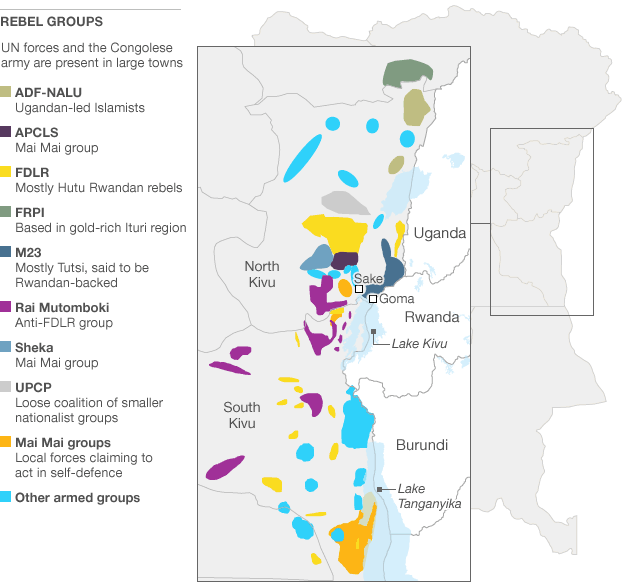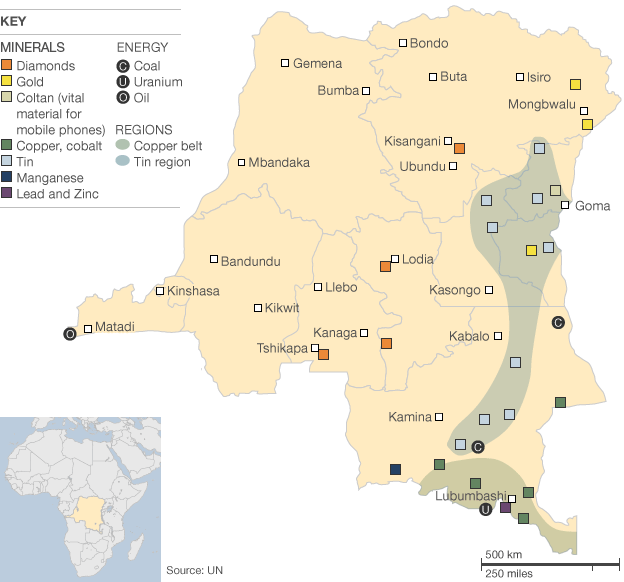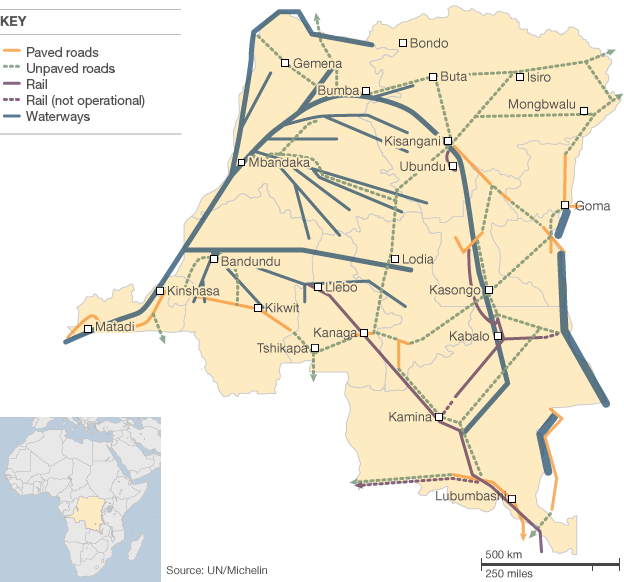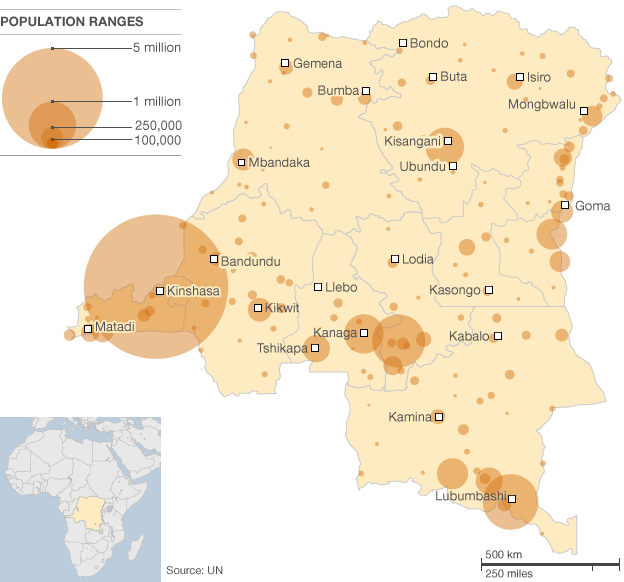Deadly DR Congo clashes over Joseph Kabila's future
- Published
As Maud Julien reports, aggressive protesters threw stones at cars near the capital's airport
At least four people have been killed in protests in the Democratic Republic of Congo calling for President Joseph Kabila to step down next year.
The protests continued on Tuesday in the capital, Kinshasa, and internet connections were blocked following Monday's clashes between opposition supporters and security forces.
Demonstrators say government plans for a census are a ploy to delay elections.
Mr Kabila is constitutionally barred from running for a third term.
The government admits next year's elections could be delayed, but says the census is vital to ensure free and fair elections.
'Looters killed'
The BBC's Maud Jullien reports from Kinshasa that most shops are closed and internet and text messaging services have been blocked, apparently on the orders of the government.
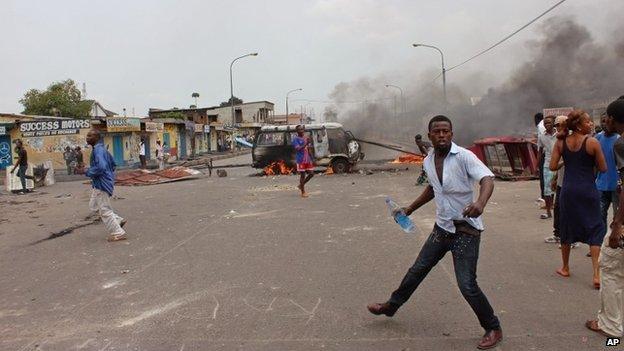
Protesters think the census plan is a ploy to extend Mr Kabila's rule
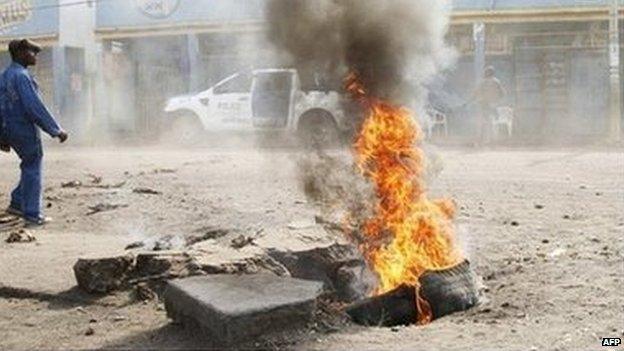
They accuse the president of trying to wage a "constitutional coup"
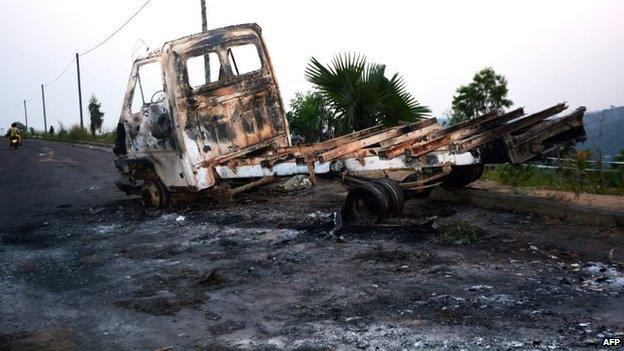
The protests have turned violent, with casualties on both sides
Hundreds of angry young men burned tyres in several neighbourhoods, looted mainly Asian-owned shops and threw stones at cars, our reporter says.
A town hall in southern Kinshasa, a city with a population of more than nine million, was also set ablaze, AFP news agency reports.
In the poor area of Masina on the city's outskirts, police tried to disperse protesters by shooting into the air, our correspondent says.
Ten people were arrested on Tuesday, AFP reports.
Government spokesman Lambert Mende said two policemen and two "looters" had been killed in Monday's clashes in the capital.
Human rights activists said up to 10 people may have been killed.
Opposition figures suggested the number of those who had died may be higher still.
Boycott
The demonstrators called on Mr Kabila to step down when his term expires and carried placards which said: "Don't touch the constitution".
Hundreds of people also protested on Monday in Goma, the main trading post in the east.
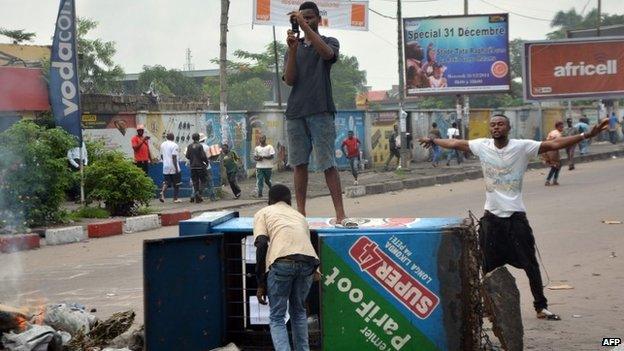
The protesters have vowed to force Mr Kabila to step down next year
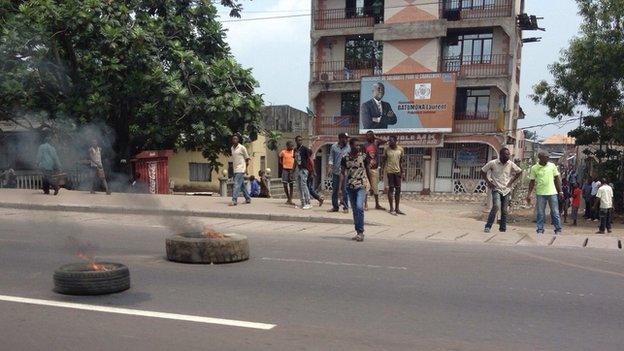
Most businesses have remained closed
The protests coincided with a debate in the Senate, the upper parliamentary chamber, over government plans to hold a census before elections.
Most senators, including members of the governing party, said they were opposed to the plan because it risked destabilising the country.
The lower chamber, the House of Representatives, approved the plan on Saturday, in a vote boycotted by opposition MPs.
The opposition says this amounts to a "constitutional coup" by Mr Kabila, as it will take about three years for a census to be conducted in DR Congo, which is two-thirds of the size of western Europe, has very little infrastructure and is hit by instability in the east.
DR Congo, formerly known as Zaire, has never had a reliable census since independence from Belgium in 1960.
Mr Kabila took power in 2001 following the assassination of his father Laurent Kabila, who was president at the time, and has won two disputed elections since then.
DR Congo is rich in natural resources, but most people are poor.

